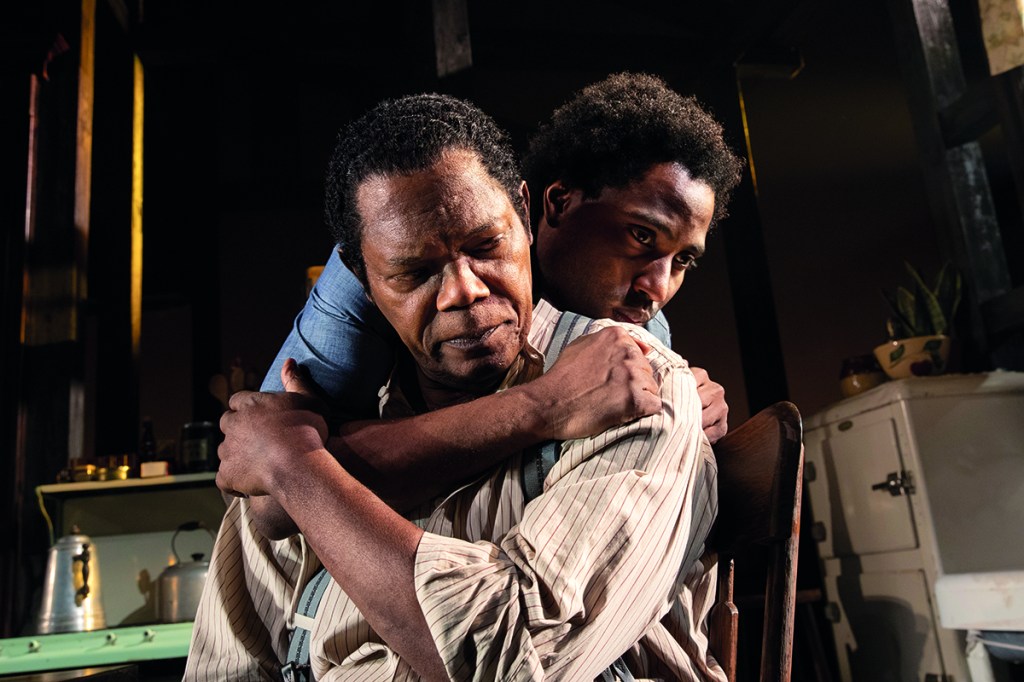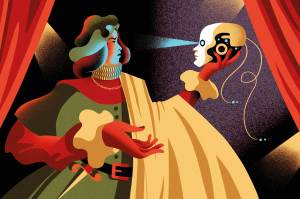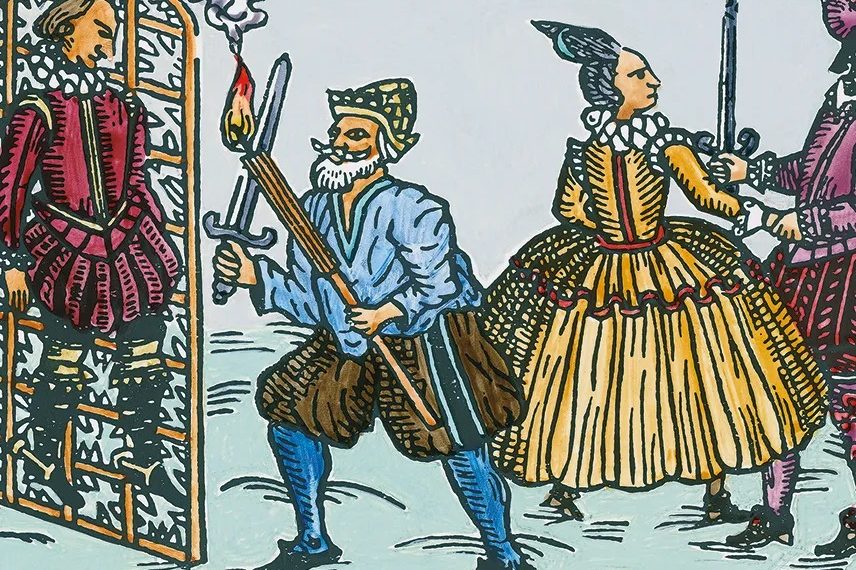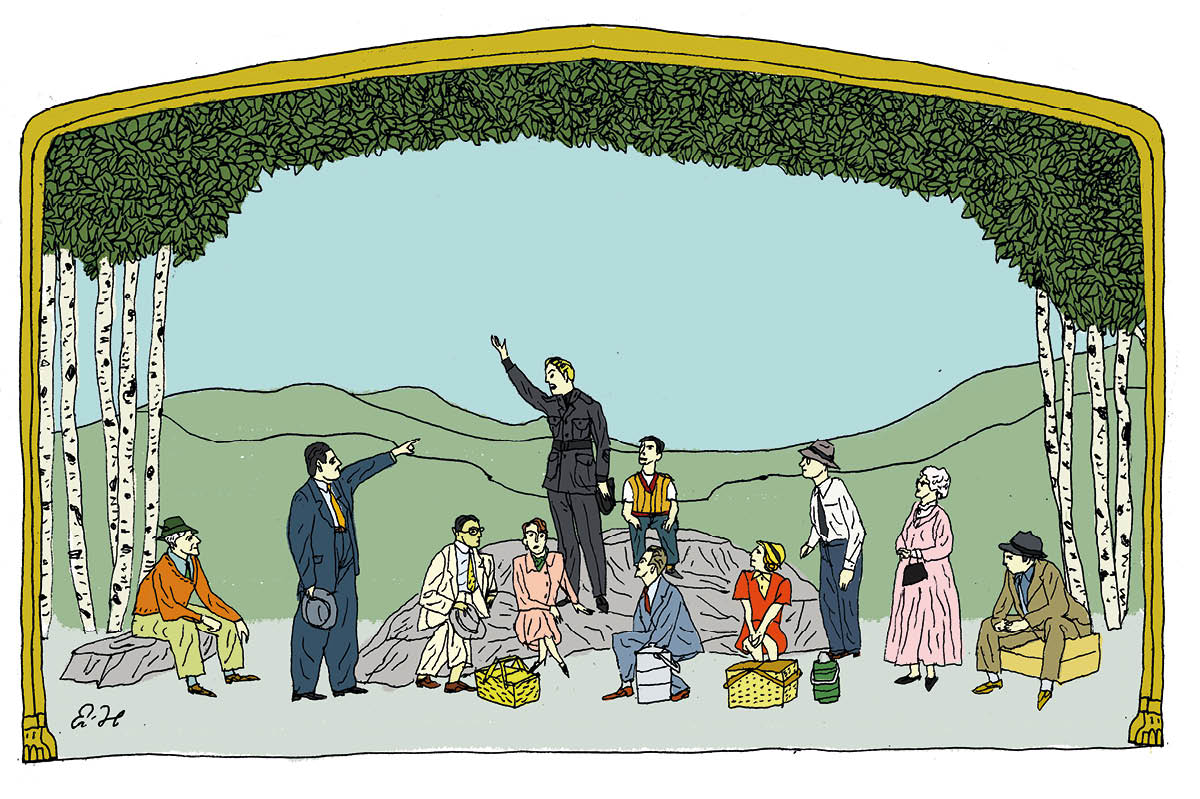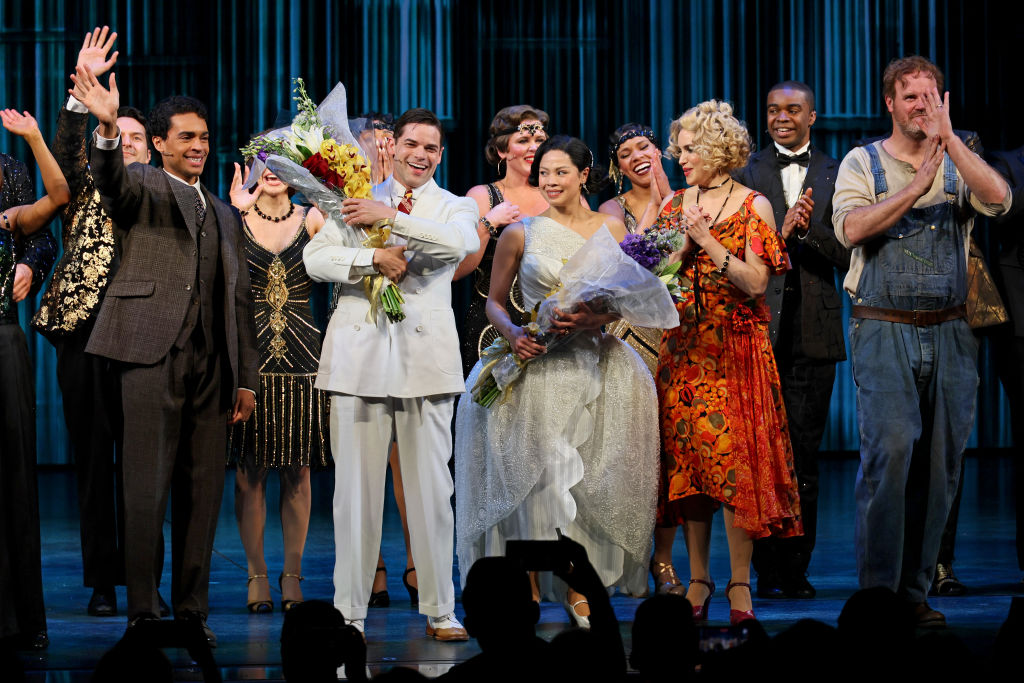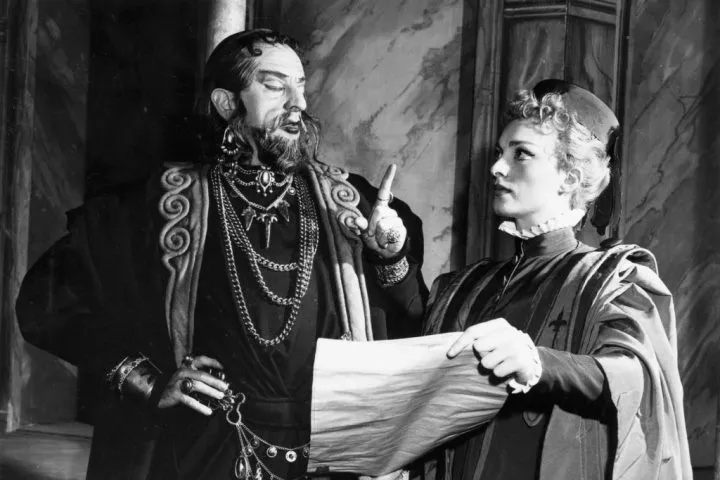In the early going of The Piano Lesson (1987) there’s mention of a merchant buying up musical instruments in the black neighborhoods of 1930s Pittsburgh. When offers for the titular family piano are rejected by its current proprietor, Berniece, her brother Boy Willie, who has arrived from the south, hopes to sell it to him behind her back.
It’s a coy reference to that great Broadway salesman of band equipment, Meredith Willson’s Music Man (1957), and the reversal gives you some idea of playwright August Wilson’s method. Where Meredith built a full musical around a musical zero (Harold Hill is tone-deaf), August composed a stage play from the music of the blues, which he called the “sacred book” of black literature. It’s not an issue of finding an audience and putting on a show; it’s a question of what it means to own the music, and whether it can even be sold.
This music first comes knocking with Boy Willie (John David Washington) at five in the morning, accompanied by Lymon (Ray Fisher), a truck full of watermelons and a storm of trouble. Washington is the engine that drives the show, lacing the action with a frantic undercurrent. He’s looking for money to buy the Mississippi farm on which his family worked as slaves, but his mania raises questions about the death of the owner, old Sutter, who mysteriously fell down a well.
A steadier presence is Samuel L. Jackson as Doaker, his uncle, whose account of the piano’s origins — carved with episodes of the family’s life on the Sutter plantation — explains why the ghost of Sutter might have been creeping around his house even before Boy Willie arrived. The ghost appears again to the widowed Berniece (a stellar Danielle Brooks), who hasn’t played the piano in years, and then her daughter Maretha (Jurnee Swan/Nadia Daniel), who can barely play “Mary Had a Little Lamb.” Berniece still won’t sell; we start to wonder if she ever could.
August Wilson was a self-described “race man,” but he knew better than to make the haunted piano a stodgy symbol for black history or spirituality or art, or to cast the ghost as a specter of white oppression. Wilson’s interest lies first and foremost with his characters, and it’s by indexing their not-at-all-straightforward impulses that the piano and the ghost become living objects. The final product is tonally rich and crackling with energy. It’s a real credit to director Latanya Richardson Jackson and all involved.
Still, for Wilson, some questions in theater were black and white. Invoking Marcus Garvey in his 1996 speech “The Ground on Which I Stand,” he ruffled feathers by proclaiming zero tolerance for colorblind casting. “To mount an all-black production of a Death of a Salesman,” he said, “or any other play conceived for white actors… is to deny us our own humanity, our own history, and the need to make our own investigations.” Alas, with the new Salesman on Broadway, Wilson’s fear has been realized, and while I’m prepared to deny his casting principles in general, I cannot for the case at hand.
Wendell Pierce makes for a truly pitiable Willy, and Sharon D. Clarke is commanding as his wife Linda, but to cast the Lomans as a black family in a sea of white oppression is to invoke a whole host of bogeymen that never appear on stage. The famous flashback scenes become inexplicably rosy: Willy seems to have repressed some unsavory bits of American life in the Twenties and Thirties. His mistress in Boston is white: if she’s taking advantage of a black man, she’s too dumb to know it; for her to represent Willy’s racial self-loathing would be shockingly crude. The family dynamics in Salesman are finely drawn, but Arthur Miller’s play is already loaded with ideological concerns about the (supposed) delusions of the working class. Add the weight of racial oppression, and the dramatic potential for Willy’s relations with his neighbor, his boss and anyone outside his immediate family sinks like a lead weight.
Nor are Wilson’s strict casting rules entirely incompatible with a deeper humanism. “Race man,” yes, but the playwright traced his intellectual heritage back to the Greeks and was an unapologetic advocate for “the common ground of the American theater.” And he correctly foresaw “an explosion of playwriting talent that will challenge our critics,” especially on questions of race, in the twenty-first century. The current emphasis on representation and identity in the arts, and the unstinting applause with which so many critics meet it confirms this. Of course, if every new black play were as intellectually energetic and finely crafted as The Piano Lesson, then our jobs as critics would be that much easier.
This article was originally published in The Spectator’s December 2022 World edition.



